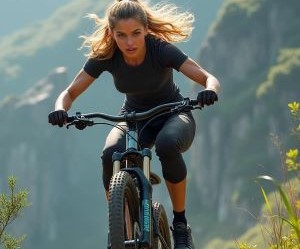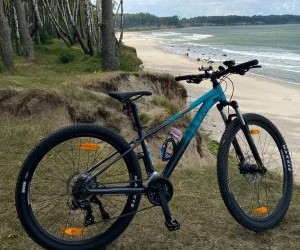Explore the best cycling and bike touring routes in Nadi, Fiji. Ride coastal roads, explore hidden villages, and soak up island vibes on two wheels.
WHAT ARE THE TOP MOUNTAIN BIKING DESTINATIONS IN NORTH AMERICA?
North America is a dreamland for mountain bikers, offering rugged peaks, forested trails, and desert landscapes. From Whistler’s downhill mecca to Moab’s red rock playground, this guide explores the most iconic destinations. Riders of all levels can find their paradise here, whether chasing adrenaline-pumping descents or scenic cross-country loops. With insights into trail networks, terrain features, and travel tips, this article helps you plan your ultimate biking adventure across the continent.

Best destinations overview
Mountain biking in North America has evolved from grassroots trailbuilding into a global phenomenon. Today, riders from around the world travel here to sample its legendary terrain. The continent’s diverse geography means there’s something for every type of rider: alpine climbs, desert slickrock, coastal rainforests, and flowy singletrack in rolling hills.
Why North America stands out
North America’s mountain biking scene shines because of its combination of infrastructure, trail variety, and culture. Resorts like Whistler and Park City invest heavily in lift-served biking, while towns like Bentonville and Fruita have embraced trail networks as economic engines. Add in stunning landscapes—from Utah’s red mesas to British Columbia’s cedar forests—and you get unmatched riding experiences.
Epic scenery spanning deserts, forests, and mountains
Communities invested in world-class trail networks
Events like Crankworx and Moab Fat Tire Festival
Year-round riding opportunities in varied climates
Whether you’re after adrenaline-pumping downhill, technical rock gardens, or family-friendly green trails, North America delivers. This section lays the foundation for exploring the destinations that consistently top global rankings.
Top trails and regions
When planning a mountain biking trip, the hardest part isn’t finding great trails—it’s narrowing them down. North America offers hundreds of elite destinations, but a few stand above the rest for their reputation, accessibility, and sheer riding quality.
Whistler, British Columbia
Whistler Bike Park is the undisputed heavyweight champion of downhill mountain biking. With machine-built flow trails, massive jump lines, and rugged technical descents, it attracts pros and casual riders alike. The surrounding Sea-to-Sky corridor, including Squamish and Pemberton, offers miles of world-class singletrack.
Moab, Utah
Moab’s Slickrock Trail is legendary for good reason. The sandstone surface provides unparalleled traction and technical challenge. Beyond Slickrock, trails like The Whole Enchilada serve up 7,000 feet of descending through alpine, desert, and canyon ecosystems in one ride.
Colorado Rockies
From Crested Butte—the birthplace of mountain biking—to Breckenridge and Vail, Colorado delivers high-altitude singletrack with sweeping alpine views. Riders face thin air, steep climbs, and rewarding descents across meadows and forests.
Bentonville, Arkansas
Dubbed the “Mountain Biking Capital of the World,” Bentonville has invested millions into trail development. Its urban-to-woods trail systems combine progressive features with accessible entry points, making it a hub for families and pros alike.
Whistler Bike Park’s iconic A-Line trail
Moab’s epic Slickrock and Whole Enchilada
Colorado’s Monarch Crest Trail
Arkansas’ Slaughter Pen and Coler Preserve
Each of these regions has developed not just trails, but entire cultures around mountain biking—complete with events, shops, and vibrant communities welcoming visitors.
Travel planning tips
Knowing where to go is only half the battle—planning your trip ensures you maximize ride time and avoid common pitfalls. Mountain biking vacations require a mix of logistics, gear preparation, and awareness of local trail etiquette.
Timing and seasons
Peak riding varies by region. Moab is best in spring and fall to avoid scorching summer heat, while Whistler peaks in summer when the lifts run full swing. Colorado’s high-altitude trails often open in late June and stay rideable through September.
Gear considerations
A well-maintained bike is essential, but packing spares can save your trip. Tubeless tire repair kits, brake pads, and derailleur hangers are must-haves. Protective gear—helmets, pads, and even full-face helmets for bike parks—add safety.
Local culture and etiquette
Respecting trails ensures they stay world-class. Stay on designated paths, yield to hikers and uphill riders, and follow local rules. Many destinations thrive because communities and visitors alike invest in sustainability.
Check seasonal trail conditions before booking
Pack spares and know basic repairs
Respect local etiquette and community norms
Consider guided tours for complex terrain
By planning smartly—aligning seasons, prepping gear, and honoring local trail ethics—you elevate your trip from good to unforgettable. Mountain biking in North America isn’t just about riding trails; it’s about connecting with landscapes and cultures that make each destination unique.
YOU MAY ALSO BE INTERESTED








